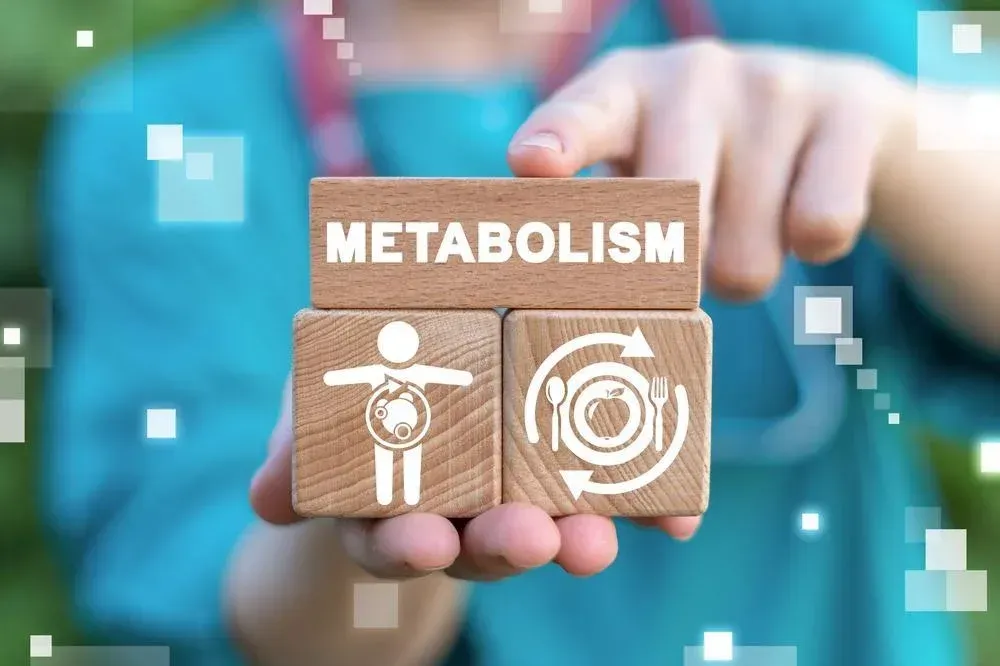Constantly Varied Nutrition Blog
It is our mission to educate and create an impact in the community by bringing nutrition to the forefront of health. Let us educate you about how to fuel your body optimally to balance your body's systems while keeping you active.

What Metabolism Really Means (and how to fix yours without starving)
What Metabolism Really Means
(and How to Fix Yours Without Starving)

This might be the only thing you read about metabolism that isn’t trying to sell you a magic powder or a $99 “cleanse.” So let’s get into it!
When most people think about metabolism, they picture someone who “eats whatever they want and stays skinny.” But your metabolism is not just about how fast you burn calories—it’s about how every system in your body functions.
Let’s redefine and clarify all of this.
🔬 Metabolism = Every Single Process Keeping You Alive
Your metabolism isn’t a single “thing.” It’s the entire set of chemical processes your body uses to create and use energy.
This includes:
Digesting food
Repairing tissues
Regulating body temperature
Breathing, circulating blood, pumping your heart
Creating hormones and neurotransmitters
Eliminating waste
Managing inflammation
Supporting immune function
Literally every physiological process in your body is a function of metabolism. So if your metabolism is sluggish or out of sync, you’ll feel it—with symptoms like:
Low energy
Trouble sleeping
Constipation
Weight gain or resistance
Irregular cycles
Mood swings
Brain fog
Your metabolism isn’t just about calories in vs. calories out. That equation oversimplifies a massively complex, adaptive system.
🔥 What Influences Your Metabolism (It’s More Than Just Food)
Your metabolism is influenced by:
Muscle mass
Hormonal balance
Stress levels (hello, cortisol)
Sleep quality
Gut health
Blood sugar regulation
Thyroid function
Nutrient intake + timing
Calories matter, yes—but so does what those calories are, when you eat them, and how your body is functioning when it receives them.
📊 Three Core Ways You Burn Energy Every Day
There are three major components of energy expenditure:
Basal Metabolic Rate (BMR)
This is the energy your body burns just to keep you alive at rest. It accounts for ~60–70% of your total daily energy use.
The biggest variable here? Muscle mass. The more muscle you have, the more energy your body burns doing literally nothing.Thermic Effect of Food (TEF)
Digesting food also costs energy. Protein has the highest thermic effect—your body uses more calories to digest it compared to carbs and fats.
TEF contributes about ~10% to daily expenditure (a small but meaningful piece).Movement / Activity (NEAT + Exercise)
Includes everything from fidgeting and walking to formal workouts. While structured workouts help, your Non-Exercise Activity Thermogenesis (NEAT)—like walking, standing, cleaning—can be just as important.
But here’s the kicker: muscle increases every one of these areas. It raises your BMR, helps you better metabolize food, and allows you to work harder with less fatigue.
🏋️♀️ Why Lifting Weights is Metabolic Medicine
The truth no one wants to tell you:
You’re not going to change your metabolism long-term with cardio or skipping meals.
But you can build a faster, more resilient metabolism by building muscle.
Why?
Muscle is metabolically active tissue—it burns calories 24/7.
Lifting improves insulin sensitivity (better blood sugar regulation = fewer cravings + crashes).
Strength training reduces cortisol when done appropriately.
More muscle means you can eat more without gaining and still lose fat.
Lifting preserves muscle during perimenopause, which naturally leads to metabolic slow-down if left unchecked.
If you're trying to lose weight without strength training, you’re missing the biggest lever available to you.
📉 Calories In / Out: Still Relevant, But Not the Whole Story
To lose fat, yes—you do need to create a calorie deficit.
But how your body handles that deficit depends on:
Your muscle mass
Your stress load
Your thyroid
Your gut health
Your sleep
Your hormonal environment
Cutting calories too far without muscle-building and metabolic support just leads to burnout, cravings, and plateaus. You’ll lose water, muscle, and mental peace before you lose meaningful fat.
✅ How to Actually Support Your Metabolism
Eat enough. Chronically under-eating slows your metabolism. Start by building meals around quality protein, lots of color and fiber, with a little healthy fats and some starch. My Balanced Plate Checklist can help.
Lift heavy (for you) weights 4x/week. More muscle = more metabolic support.
Focus on protein. Aim for at least 30-40g per meal.
Get real sleep. Your hormones and metabolism reset while you rest.
Manage stress. Cortisol directly impacts fat storage, insulin resistance, and thyroid output.
Balance your blood sugar. It keeps your hunger, mood, and cravings steady.
Support your gut. Because a backed-up gut leads to backed-up hormones.
💡 Bottom Line:
Your metabolism is not broken.
It’s likely underfed, under-muscled, under-recovered, and over-stressed.
The fix isn’t a cleanse.
It’s rebuilding trust with your body—through food, muscle, rest, and consistency.
If you’re ready to stop guessing and start understanding your metabolism in real-time, my Foundations of Balance Guide walks you through how to support these exact systems every day.
And if you want support tailoring it to your body, symptoms, and goals—1:1 coaching is here for that.
You deserve to feel strong, steady, and fed. Let’s get you there.
— Dana

